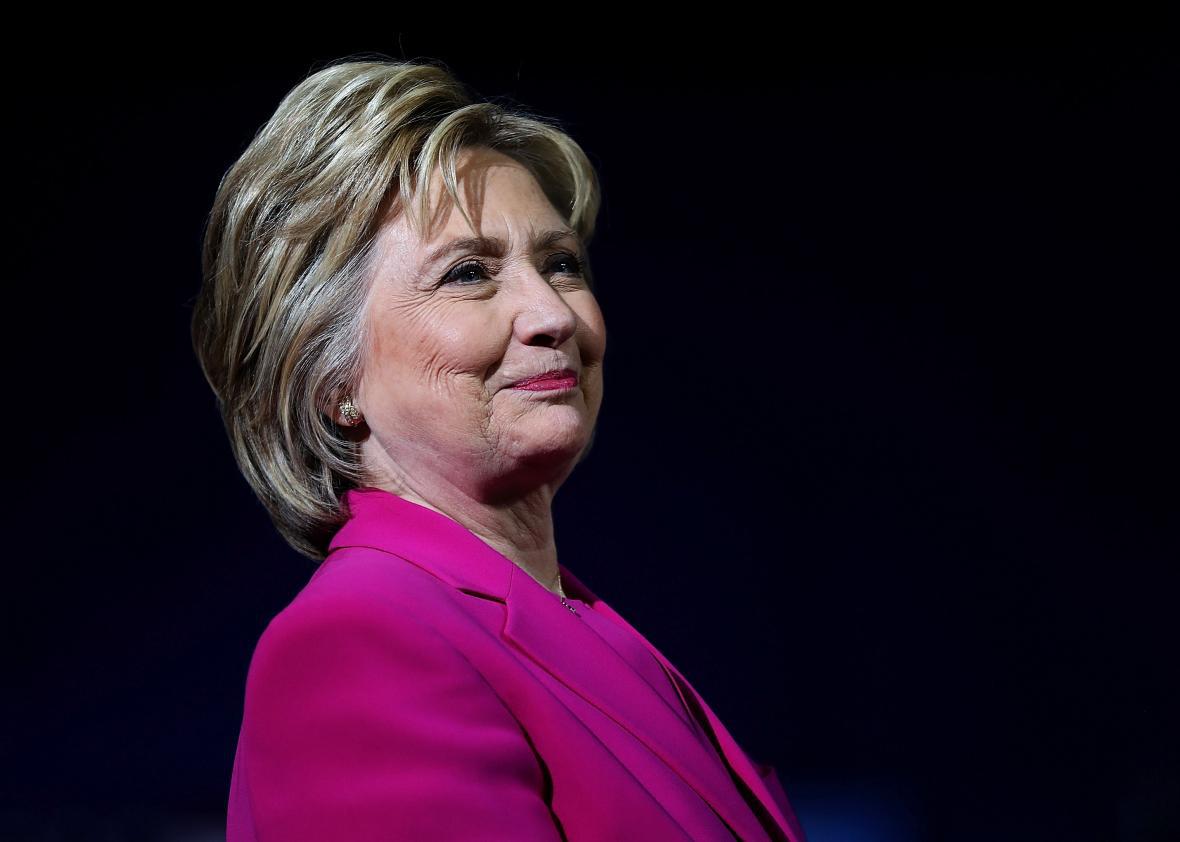More than two decades before Hillary Clinton became the first woman nominated by a major political party for president, a T-shirt at Walmart made a prophesy.
“Someday,” it read, “a woman will be president.”
Designed by Ann Moliver Ruben, a then-70-year-old psychologist, the shirt featured the character Margaret from Dennis the Menace and appeared in a Walmart franchise in the Miami suburb of Miramar. A few weeks later, according to a 1995 Miami Herald article, Ruben visited the store to see how her shirts were selling. She found them taken off the racks and hidden in the back room, so she asked the branch’s clothes buyer, Sharon Higginbotham, what happened.
“She told me they’d never carry the shirt because it is against Wal-Mart’s philosophy of family values,” Ruben told the Herald.
Higginbotham later contested that account but didn’t exactly contradict it by clarifying that the shirt violated the store’s “policy of political neutrality.” Walmart spokeswoman Jane Bockholt said the shirt was “offensive” to some shoppers, so merchandisers struck it from the shelves.
Ruben had designed the shirt a couple of years earlier after conducting a survey of boys in elementary school. She found that most thought girls just didn’t have brains to be president. (One wonders how those boys would explain the candidacy of Donald J. Trump.) She thought a T-shirt could introduce cues that might destabilize the foundation of these deeply entrenched gender biases. When women wore the shirt, Ruben found, they got insults from men. Teen boys wouldn’t even take the shirt for free.
Within 48 hours of the first Associated Press article about the Walmart incident, the Herald reported, the T-shirt’s removal had caused Walmart “a national public relations disaster that outraged women from Anchorage to Key West.” Boycotts were organized, Walmart’s phones were mobbed, Ruben’s direct orders spiked, and the chain eventually admitted it had “overreacted” and “made a mistake.” It’s fair to say that the public would have a similar response today. It’s just as likely that few if any of the shoppers who allegedly complained about the shirt would even notice it today, so successful has Hillary Clinton been in making a female president seem like a rapidly approaching inevitability. (Even Trump says he wants a woman to be president someday!)
The fact that a Walmart employee saw the suggestion of a hypothetical female president as a somehow politically biased notion shows that there is a woman card in politics and that it has uniformly been counted as a demerit. The shirt didn’t suggest anything beyond the pale of contemporary political norms. It didn’t propose that a radical commie-sympathizing woman, a polyamorous queer abortion-providing woman, or a racist reality-show conwoman would be president—just any single woman. The shirt didn’t specify in which country she’d be president, meaning it was already way outdated since Isabel Martínez de Perón popped that cherry when she served a year and change as president of Argentina in the mid-’70s. It didn’t suggest that a woman would ascend to the presidency in the next election, or the one after that—it’s simply a conservative statement of probability to predict that a member of a demographic that comprises just over half the population will become president before the end of either the human race or the democratic experiment. The shirt could have even meant that, according to certain interpretations of quantum mechanics, everything that can happen will happen, and so there are surely female American presidents in at least a few of the infinite parallel universes.
Still, 21 years back down the political pipeline, the idea of someday electing a female president was a far-off reverie, even for the shirt’s supporters. Explaining why he and his Miramar Walmart stocked the T-shirt, Les Bellanco told the Miami Herald, “We thought it was a very novel idea.”
